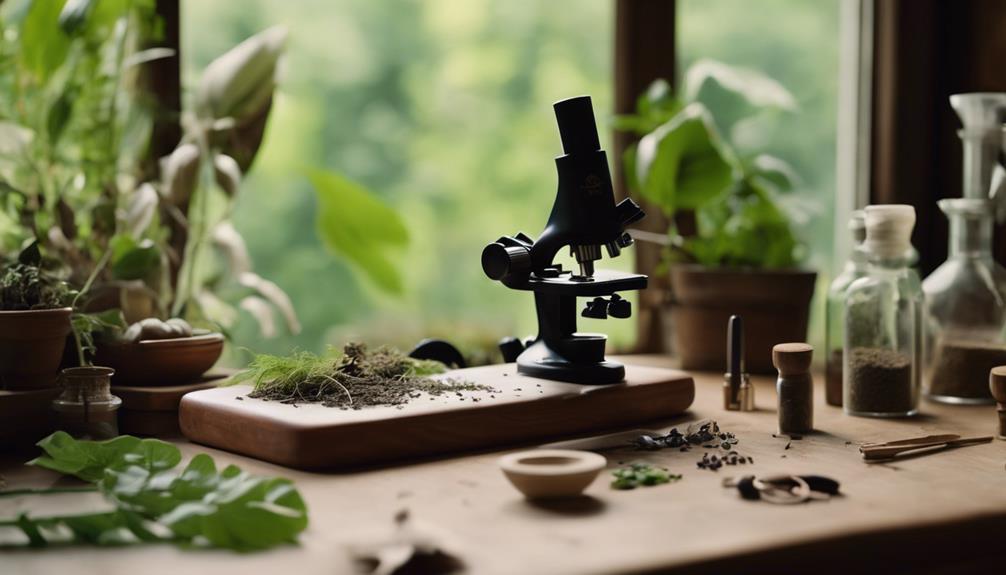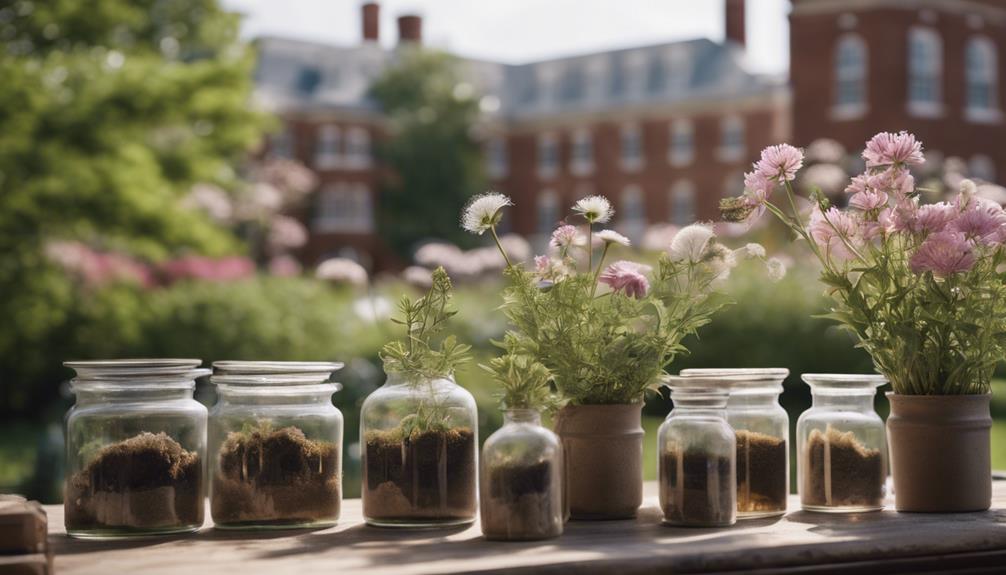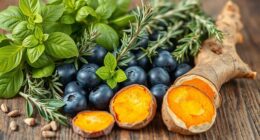We've identified the top three educational programs in herbalism, offering thorough curricula and impressive graduate outcomes. Pacific College of Health and Science in New York City offers two degree programs in Herbalism. Bastyr University's Herbalism Program in Washington state is highly regarded, with a 4.75/5 rating, and covers Botany, Biochemistry, and Pharmacology. Maryland University's Integrative Health in Maryland offers three Herbalism degree programs, graduating 68 students in 2022, and has a 4.75/5 rating. These institutions provide a solid foundation for a successful herbalism career. To explore these programs further and discover more about their unique strengths, let's take a closer look.
Key Takeaways
• Pacific College of Health and Science in New York City offers two degree programs in Herbalism/Herbalist.
• Bastyr University's Herbalism Program in Washington state provides an extensive curriculum including Botany, Biochemistry, and Pharmacology.
• Maryland University's Integrative Health in Maryland offers three Herbalism/Herbalist degree programs with a strong reputation and positive student feedback.
• These top three programs cater to aspiring Herbalism students, offering a solid foundation for a successful herbalism career.
• Bastyr University and Maryland University both have a 4.75/5 rating, indicating high-quality education and strong reputations.
Pacific College of Health and Science
We're considering Pacific College of Health and Science, a private for-profit university in New York City that offers two degree programs in Herbalism/Herbalist. This small private university in a large city provides students with the opportunity to pursue herbal education alongside other health and wellness programs.
As we explore Pacific College, we find that it offers two Herbalism/Herbalist degree programs, catering to students interested in this field. Located in New York, the college provides a unique learning environment that combines herbal education with other health-focused programs. Although Pacific College graduated zero Herbalism/Herbalist students in 2022, it still presents an attractive option for those interested in the field.
The college hasn't received any user reviews or ratings yet, which may be due to its small size. Despite this, Pacific College remains a viable option for those seeking herbal education in New York. As we weigh our options, we'll consider Pacific College's programs and what they've to offer aspiring Herbalism students.
Bastyr University's Herbalism Program

As we shift our focus to Bastyr University, we find a private not-for-profit institution in Kenmore, Washington, that offers an extensive Herbal Sciences program. This program is designed to provide students with a thorough understanding of plants and their medicinal properties.
The curriculum is divided into four core areas:
- Botany: Students learn about plant identification, classification, and evolution.
- Biochemistry: The program covers the chemical composition of plants and their effects on the human body.
- Pharmacology and Clinical Herbalism: Students explore the therapeutic uses of plants and how to apply herbal remedies in clinical practice.
Bastyr University's Herbalism program is highly regarded, with a rating of 4.75/5 based on user reviews. In 2022, three students graduated from this program, demonstrating the university's commitment to providing a quality education in herbalism.
Maryland University's Integrative Health

At Maryland University of Integrative Health, our pursuit of holistic wellness begins with a thorough herbal education that has earned a strong reputation and garnered positive student feedback.
As a small, private not-for-profit university in Laurel, MD, we're proud to offer three Herbalism/Herbalist degree programs that equip students with extensive herbal knowledge. In 2022, we graduated 68 students in these programs, demonstrating our commitment to producing skilled clinical herbalists.
Our Herbal Studies program provides students with access to a wide range of herbal resources, allowing them to gain a deep understanding of herbalism. With a rating of 4.75/5 based on user reviews, it's clear that our Integrative Health offers a well-regarded herbal program.
Our herbal classes are designed to provide a strong foundation in herbalism, preparing students for a successful career in the field. By choosing Maryland University of Integrative Health, students can trust that they'll receive a high-quality herbal education that prepares them for a fulfilling career as a clinical herbalist.
Frequently Asked Questions
Where Is the Best Place to Study Herbalism?
As we explore the world of herbalism, we often wonder where to study this ancient practice. The answer depends on our personal preferences, location, and career goals.
We should consider factors like program length, curriculum focus, and hands-on experience when choosing a school. Researching top herbalism schools and reading student reviews can help us make an informed decision.
What Is the Best Degree for a Herbalist?
We've been wondering, what's the best degree for a herbalist?
Well, we've found that a Master of Science in Herbal Medicine or a similar advanced degree is often the way to go. These programs provide in-depth knowledge of plant medicine, clinical skills, and hands-on experience with herbs.
With a degree in herbalism, we can pursue careers as clinical herbalists, herbal product developers, or herbal educators, and make a real difference in the world of natural health.
What Is the Best Way to Learn Herbalism?
As we explore the world of herbalism, we coincidentally find that the most effective way to learn it's through hands-on experience with plants and practical application of herbal remedies.
While formal education programs and online platforms provide structured learning, we believe that combining self-study, workshops, and apprenticeships offers a well-rounded education experience.
What Education Does a Master Herbalist Need?
As we explore the requirements for a Master Herbalist, we find that a combination of formal education, hands-on experience, and specialized training is essential.
We need to complete advanced herbalism programs, apprenticeships, or mentorships with experienced herbalists, and often pursue additional certifications or specializations. Advanced coursework in anatomy, physiology, botany, pharmacology, and herbal therapeutics is vital.
We must engage in ongoing professional development to stay updated on the latest advancements in herbal medicine.
Conclusion
As we weave through the vast tapestry of herbalism education, three programs stand out like beacons of excellence. Pacific College of Health and Science, Bastyr University's Herbalism Program, and Maryland University's Integrative Health shine bright, offering thorough curricula that illuminate the path to mastering the ancient art of herbalism.
With these pillars of knowledge, the next generation of herbalists can confidently set out on a journey to heal, to nourish, and to transform.










